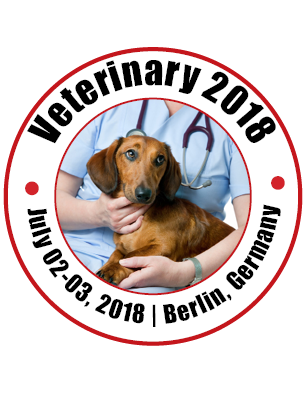Julio V Figueroa
National Research Center for Veterinary Parasitology, Mexico
Title: Determination of the immunogenicity conferred in cattle by inoculation of Babesia bigemina recombinant antigens
Biography
Biography: Julio V Figueroa
Abstract
The development of a subunit vaccine against Babesia bigemina probably requires the inclusion of multiple immunogenic peptides of several proteins. Some of the antigens proposed as candidates are: RAP-1, a 58-kDa rhoptry associated protein; GP45, a 45 kDa merozoite surface glycoprotein; and 12D3, a 42 kDa apical complex protein. Previous studies performed individually with RAP-1 or Gp45 from B. bigemina and 12D3 from B. bovis have shown the induction of partial protection to challenge with a homologous strain. However, the immunoprotective potential of these antigens has not been tested in a combined form as a cocktail. To determine the immunogenicity in cattle inoculated with a cocktail of RAP-1, GP45 and 12D3 recombinant proteins, eighteen 9-10 months old, Bostaurus steers, serologically negative to Babesia sp, and from a ranch free of Rhipicephalus microplus ticks were used. Cattle were divided at random into 3 groups of 6 animals each. Group I was inoculated on day 0 with 1 ml of PBS emulsified in Montanide 75 adjuvant. Group II received 100 μg of each recombinant protein plus adjuvant, for 2 occasions with a difference of 15 days. Group III cattle were vaccinated with 1x108 infected frozen erythrocytes containing an attenuated strain of B. bigemina. Cattle immunized with the recombinant proteins cocktail seroconverted after the second immunization, presenting with relatively high levels of antibodies to 12D3 as measured by an indirect ELISA with the recombinant proteins as antigen. Immunized animals seroconverted specifically and recognized the authentic antigens of B. bigemina, as evidenced by an immunofluorescence assay using infected erythrocytes as antigen. Cattle will be challenged with a virulent strain of B. bigemina to verify whether the immunogen tested as a cocktail of recombinant proteins confers any protection in the immunized cattle.

